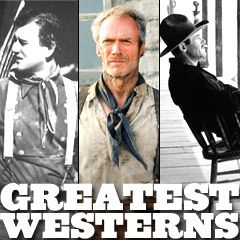
|
Greatest Westerns 2000s |
| Film Title/Year/Director/Length/Studio, Setting (or Time Period) and Brief Description | |
Open Range (2003)
Some thought that this traditional western by co-star, co-producer, and director Kevin Costner helped to redeem his reputation - it was his first film since the unpopular The Postman (1997). However, it was mostly a sentimental vanity project with cliched western themes. During range wars and cultural clashes in the 1880s between ranchers and free-grazing cowboys in the open prairie of Montana, two law-abiding cattlemen - veteran "Boss" Spearman (Robert Duvall) and his hired hand partner of 10 years, ex-Civil War soldier and guilt-ridden gunslinger Charley Waite (Kevin Costner), found themselves confronted by threatening and ruthless, big-time land baron-rancher, Irish immigrant Denton Baxter (Michael Gambon). The corrupt Baxter was in control of local Sheriff Poole (James Russo), and his hired gun Butler (Kim Coates) attacked two of Boss' men. Gentle giant Mose Harrison (Abraham Benrubi) was killed and 16 year-old Mexican orphan Button (Diego Luna) was seriously wounded. During a predictable climactic mid-day shoot-out against Baxter and his men, the vengeful Boss and Charley were aided by local old-timer Percy (Michael Jeter) and Doc Barlow's (Dean McDermott) middle-aged sister Sue (Annette Bening). Boss was wounded, but Baxter ended up mortally-wounded. Peace was restored, after which Charley proposed to Sue in the anti-climactic, hackneyed love story, and he and Boss decided to settle down in nearby Harmonville as saloon owners. |
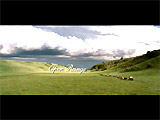
|
The Proposition (2005, Australia/UK)
This bleak and violent uncompromising Australian western opened with the murder of an entire farm family - the Hopkins, including the rape of the pregnant Mrs. Hopkins. After a violent gunfight in a brothel, British lawman Captain Morris Stanley (Ray Winstone) and his posse apprehended two of the three gang members, notorious Irish outlaw brothers Charlie Burns (Guy Pearce) and his 14 year-old, dim-witted younger brother Mike "Mikey" Burns (Richard Wilson). [Backstory: Captain Stanley was attempting to settle, "civilize" and tame the harsh outback, with his fragile, frail and prim wife Martha Stanley (Emily Watson) in a frontier home with delicate china, a white picket fence and a rose garden.] Captain Stanley continued his pursuit of the third gang member in his hideout, the eldest brother Arthur Burns (Danny Huston), known as "The Dog Man." To put pressure on his two captives, the authoritative Capt. Stanley proposed an impossible, risky, and morally-questionable deal or "proposition." If Charlie was released and would kill his older brother within nine days ("I want you to kill your brother"), then Mikey would be pardoned and avoid hanging on Christmas Day. There was some disagreement about the Proposition, mostly from second-in-command Sergeant Lawrence (Robert Morgan) and the town's chief Eden Fletcher (David Wenham), who sought punishing revenge against Mikey in the form of a brutal, death-inducing flogging with 100 lashes. Meanwhile, during Charlie's search for his psychotic brother (and a period of internal torment), he was speared by an Aboriginal Man and lost consciousness, and later awoke in the camp of his poetry-reciting brother Arthur, where he met the gang-member who had saved him, Samuel Stoat (Tom Budge). Two others included Queenie (Leah Purcell) and another black Aboriginal named Two-Bob (Tom E. Lewis). Charlie did not keep his deal with Captain Stanley, and plotted with Arthur, Samuel, and Two-Bob to break their brother Mikey out of jail. Although Mikey was freed by the gang, he was dead as a result of his flogging wounds. In the film's finale, the gang vengefully attacked Captain Stanley and his wife in their home as they celebrated Christmas Day. Stanley was shot and wounded, while Samuel raped Martha. Reaching his breaking point, Charlie shot Samuel in the head, then fired twice at his brother while stating: "No more." The film ended with Charlie sitting next to his lethally-wounded brother ("You got me, Charlie. What are you going to do now?") as he died during an outback sunset. |
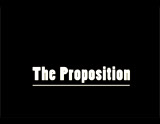
|
The Assassination of Jesse James by the Coward Robert
Ford (2007)
This highly-acclaimed, historically-accurate, epic-length psychological western retold the story of charismatic, frontier Missouri fugitive outlaw Jesse James (Brad Pitt), and his devoted older brother Frank James (Sam Shepard). The two brothers were joined in their gang by Charley Ford (Sam Rockwell), who eventually convinced the reluctant James' brothers to take on his younger brother, 19 year-old 'sidekick' Robert "Bob" Ford (Casey Affleck). At the time of 34 year-old Jesse's death, he and Frank were planning their gang's robbery of the Platte City, MO bank, while Jesse lived with his wife Zee (Mary-Louise Parker) and two children nearby in a small cottage in St. Joseph, MO. The legendary Jesse James was felled (shot in the back of the head after disarming himself) on the morning of April 3rd, 1882 in his family's home by Judas-like "Bob" Ford. Many motivations were suggested for the assassination - jealousy, a desire for fame or the bounty reward, disillusionment with his idol, resentment or fear, and the promise of a pardon from the Governor of Missouri Thomas Crittenden (James Carville). After the killing, the Ford brothers become notorious, exploitative celebrities with a Manhattan theater show that re-enacted the assassination. Bob played himself, while older brother Charley acted as the victim Jesse James. As Jesse's fame as a mythic folk hero increased, the two brothers were ultimately undone and reviled, and Bob was mockingly labeled a "coward." A terminally-ill case of TB caused Charley to commit suicide in May of 1884. Eight years later in 1892 in Colorado, the increasingly-regretful Bob was murdered by Edward O'Kelley (Michael Copeman) at his saloon - who was pardoned ten years later after serving part of his life imprisonment sentence. |
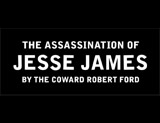
|
No Country For Old Men (2007)
In the Coen Brothers' dark Best Picture-winning crime drama and neo-western was based upon Cormac McCarthy's 2005 novel. It told about a bad drug-deal gone wrong in early 1980s West Texas, with a disillusioned, retiring sheriff tracking the psychotic and sociopathic killer. In the opening scene, the psychotic hitman - handcuffed amoral, thrill-killer Anton Chigurh (Javier Bardem), strangled-murdered a young deputy (Zach Hopkins), using his handcuffs as a garrote from behind. After the killing, he reacted with a grinning, satisfied exhalation, and then walked away from the bloody, scuffed-up floor from the flailing boots of the struggling man. Chigurh escaped policy custody and jail to recover a satchel with $2 million dollars from the aftermath of the failed drug deal. He was searching for the money that had been retrieved by Vietnam veteran and Texas resident Llewelyn Moss (Josh Brolin). Throughout the film, the enigmatic Chigurh killed other victims with a compressed-air cattlegun as he pursued the satchel with the money, held by Moss. When he was able to confront Moss by phone, Chigurh promised that Moss' young and innocent wife Carla Jean (Kelly Macdonald), wouldn't be hurt if Moss gave up the money, but he defiantly refused. Throughout the modern-day western, Chigurh offered various individuals an enigmatic coin-toss wager, in particular, a Texaco gas station manager in a chilling cat-and-mouse conversation. In the concluding scene, the evil and remorseless killer Chigurh confronted Moss's wife Carla Jean in her bedroom. Chigurh offered her his usual 50/50 chance of survival by flipping a coin ("OK. This is the best I can do. Call it"), but she refused: "I knowed you was crazy when I saw you sittin' there. I knowed exactly what was in store for me... I ain't gonna call it...The coin don't have no say - it's just you." He replied: "I got here the same way the coin did." She was then predictably murdered (off-screen), signified by his leaving the house alone. In the ending sequence, retired Sheriff Ed Tom Bell (Tommy Lee Jones) sorrowfully recollected a second dream about his father to his wife Loretta (Tess Harper) - a metaphor for mortality in life. |
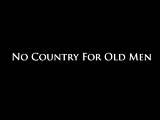
|
3:10 to Yuma (2007)
This was an action-movie remake of the original 1957 classic - a psychological western and intense character study. It opened with a typical stagecoach payroll robbery by legendary, black-hatted outlaw Ben Wade (Russell Crowe) and his gang. Injured bounty hunter/Pinkerton guard Byron McElroy (Peter Fonda) was taken to Bisbee, Arizona for treatment, where Wade was captured by the authorities. Two-faced railroad representative Grayson Butterfield (Dallas Roberts) offered $200 to a crippled (by friendly fire), one-footed Civil War veteran - a struggling small-time farmer named Dan Evans (Christian Bale), to join a posse that would take Wade to the Contention train station in a nearby town, three days away across dangerous Apache Indian land. There, the 3:10 train would take Wade on a prison car to Yuma for a quick Federal trial before his hanging-execution.Wade's sadistic, slightly fey and treacherous right-hand gunman, Charlie Prince (Ben Foster) led Wade's gang to liberate their charismatic leader. Meanwhile, Butterfield bargained further with the beleaguered Evans (who wished to regain his son's respect) - he promised to safely escort Evans' 14 year-old hot-tempered, judgmental son William (Logan Lerman) home, pay off Evans' debts, ensure his water rights, and provide $1,000 to Evans' wife on Butterfield's return. As Evans put Wade on the train, he was shot to death. In the improbable conversion sequence in the conclusion, Wade vengefully murdered every single one of his own gang members, then boarded the train by himself - respectfully paying tribute to the martyred rancher. |
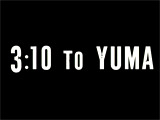
|
Appaloosa (2008)
Unrelated to The Appaloosa (1966) starring Marlon Brando. Noted as the second film for actor/director Ed Harris, who starred as newly-appointed lawman Virgil Cole in the New Mexico town of Appaloosa, with his buddy/partner - deputy Everett Hitch (Viggo Mortensen). This traditional western's bad guy was intimidating rancher Randall Bragg (Jeremy Irons), responsible for the recent cold-blooded murders of the town's Marshal Jack Bell (Robert Jauregui) and two of his deputies. After Bragg was tried for murder and found guilty, he was rescued during train transport to his execution by brutish, gunslinging brothers Ring and Mackie Shelton (Lance Henriksen and Adam Nelson). The outlaws had taken along with them Cole's attractive yet fickle love interest, recently widowed Allison "Allie" French (Renée Zellweger). Bragg was freed by the Sheltons, leading to the inevitable showdown between the two sides - Cole and Hitch were wounded, while the two Sheltons and their cousin Sheriff Russell (Argos MacCallum) were killed, although Bragg again escaped. Since it was impossible for Cole to arrest Bragg (who was secretly engaging in illegalities and romancing Allie on the side) after he returned to Appaloosa with a presidential pardon, Hitch turned in his deputy's badge and challenged Bragg to a duel - and the terrorizing, ruthless rancher was finally killed. |
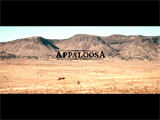
|
(chronological by film title) Introduction | Silents-1930s | 1940s | 1950-1955 | 1956-1959 | 1960-1965 1966-1969 | 1970s | 1980s-1990s | 2000s | 2010s |